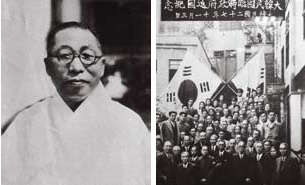Silhak movement in the Joseon Dynasty in South Korea
Since the beginning of
the 17th century, a movement that advocated Silhak, or learning about practical
matters, gained considerable momentum among liberal-minded scholars as a tool
for building a modern nation.
They strongly advocate
for improvements in agriculture and industry, in line with comprehensive
reforms in terms of land distribution. However, the nobles of conservative
governments were not ready to make such drastic changes.
In the second half of
the Joseon Dynasty, the administration of government and the upper classes was
marked by factionalism or the formation of groups which appeared repeatedly. To
clear up the unwanted political situation, King Yeongjo (1724-1776) finally
adopted an impartial policy. Thus he was able to strengthen the authority of
the King and create political stability.
King Jeongjo
(1776-1800) succeeded in maintaining impartial politics and established a royal
library to store royal documents and records. Ian also initiated other reforms
in the political and cultural fields. In this period the Silhak system developed
rapidly. A number of prominent scholars wrote progressive works advocating
reforms in agriculture and culture, but only a few of their ideas were adopted
by the government.
Silhak was a Korean
Confucian social reform movement at the end of the Joseon Dynasty. Sil means
"actual" or "practical," and rights means "to
learn" or "to learn." It developed in response to the
metaphysical nature of Neo-Confucianism (성리학) which was
increasingly disconnected from the rapid agricultural, industrial and political
changes that occurred in Korea between the end of the 17th century and the
beginning of the 19th century. Silhak is designed to fight
"uncritically" following the teachings of Confucianism and strict
adherence to "formalism" and "ritual" by neo-Confucianism.
Most of Silhak's scholars come from factions that are excluded from power and
other dissatisfied scholars who are calling for reform. They advocated an
empirical Confucianism that cared deeply about human society at a practical
level.
Its supporters generally
argue for reforming the rigid Confucian social structure, land reform to
alleviate the suffering of peasants, promoting Korea's own national identity
and culture, encouraging scientific studies, and advocating technology exchange
with foreign countries. Silhak scholars want to use a realistic and
experimental approach to social problems with consideration of people's
welfare. Silhak scholars encourage human equality and move towards a more
centric Korean view of Korean history. The Silhak School is credited with
helping to create modern Korea.





Komentar
Posting Komentar